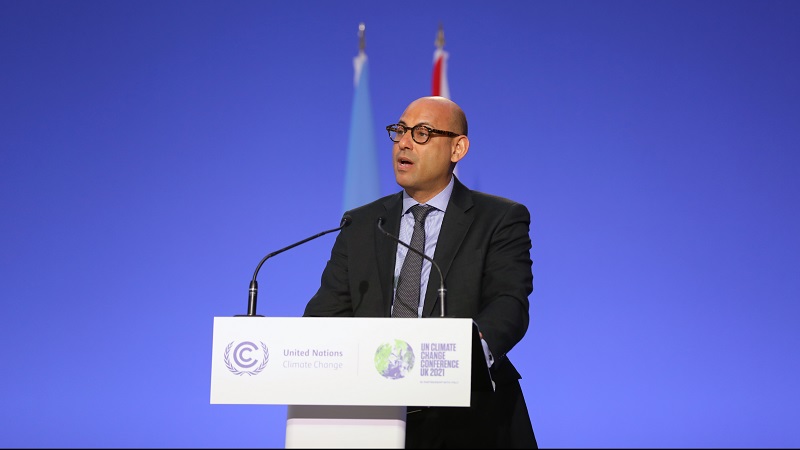Newly appointed UN Climate Change head Simon Stiell has warned leaders “there can be no backsliding” on international climate efforts ahead of the next climate summit in Egypt.
Grenada’s former climate and environment minister, who took the reins of the UN climate body at the end of August, made the comments at an event at the UN general assembly on Monday. This was his first public intervention in the role.
The world is at “an inflection point,” Stiell told the plenary hall in New York. “The science is clear, if we continue to do what we’re doing, we’re going to fall off a cliff edge.”
While many world leaders were attending the state funeral of Queen Elizabeth II across the Atlantic, those who arrived to the UN early were discussing sustainable development.
To meet the Paris Agreement goals, global emissions need to be halved by 2030, said Stiell. “Think about it… That is equivalent to two World Cup finals, two Olympic finals to go”.
Upcoming Cop27 talks in Sharm el-Sheikh, Egypt, in November need to deliver “progress and direction,” he said.
UN climate negotiations are shifting from target and rule-setting to implementation, across four negotiation tracks: cutting emissions, coping with impacts, finance and addressing losses and damages from impacts which can’t be adapted to.
Cop27, Stiell said, has to “recognise the urgency of what has to be done and the scale of the response that is required.”
Stiell is taking on the leadership of UN Climate Change at a time when geopolitical tensions are creating headwinds to action.
At the Cop26 climate summit, the former minister led consultations with Danish environment minister Dan Jørgensen on how countries can reduce their emissions faster this decade to keep 1.5C within reach.
These discussions led to countries agreeing to “revisit and strengthen” their 2030 climate plans by the end of 2022.
Australia, Egypt and the UAE have updated their climate plans. India formalised its Cop26 commitments. There has been policy progress in the US, with the passage of a landmark climate bill.
But most G20 countries have yet to answer the call.
Instead, the energy crisis triggered by Russia’s war on Ukraine has seen many nations ramp up fossil fuel production at home and seek alternative gas supplies overseas.
